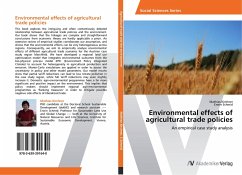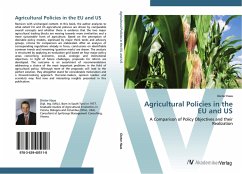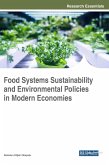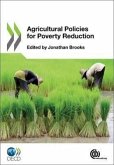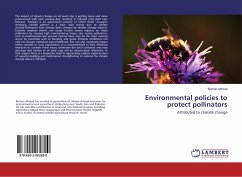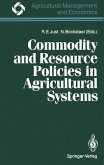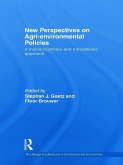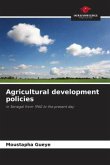This book explores the intriguing and often contentiously debated relationship between agricultural trade policies and the environment. Our book shows that the linkages are complex and straightforward conclusions from economic theory are hardly applicable a priori. An extensive review of empirical studies corroborates our assumption, and shows that the environmental effects can be very heterogeneous across regions. Consequently, we aim to empirically analyse environmental effects of different agricultural trade scenarios for the Austrian case study region Marchfeld. We have developed a regional land use optimization model that integrates environmental outcomes from the bio-physical process model EPIC (Environment Policy Integrated Climate) to account for heterogeneity in agricultural production and emission. Monte-Carlo simulations are applied in order to assess the uncertainty in policy and other model parameters. Our model results show that partial tariff reductions can lead toless nitrate pollution in the case study region, while full tariff reductions may even slightly increase it. Domestic agri-environmental programmes have a far more significant and positive impact on the environment. This implies that policy makers should implement regional agri-environmental programmes as flanking measures in order to mitigate possible negative side effects of liberalized trade.

